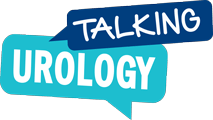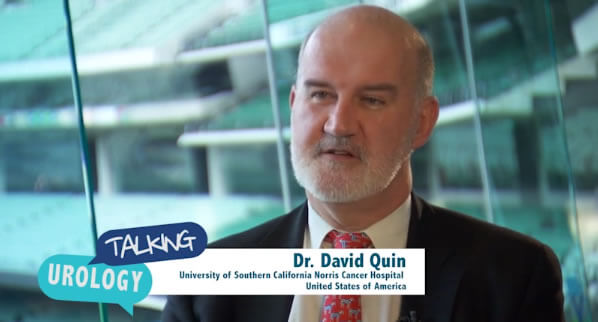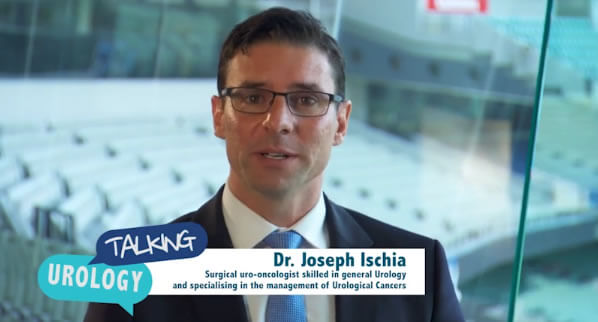ANZUP 2017 – A/Prof Prue Cormie
A/Prof Prue Cormie discusses the multitude of benefits of exercise in men with prostate cancer.Talking Urology podcast transcript
ANZUP 2017 Interviews – David Gray and Prue Cormie
David: So, it’s David Gray here chatting with Prue Cormie thanks very much for joining us Prue. So, you’ve just given your presentation here at ANZUP and there were some positively alarming stats you had on about exercise in prostate cancer and couple study showing 26% to 39% of decrease in prostate cancer specific mortality and also interesting science behind doubling time. You happen to mention something about that?
Prue: Yes, absolutely. Thanks, so much David it’s great to have a chance to be on Talking Urology. There some epidemiological evidence out there now and it’s a growing body of evidence that suggests that men who are more physically active or engage in more regular exercise have a low relative risk of dying from prostate cancer. While this is just epidemiologic research at this stage, really high quality studies controlling from a multi varied analysis, controlling for a lot of different confounders and these results that coming out quite consistently. We know that the quality of the exercise mediates the magnitude response. It’s almost a dose response relationship saying in these epidemiological studies in that the people who were doing higher quality exercise have a more pronounced protective effect.
David: Right. And so, exercise and the side effects of men on androgen deprivation therapy, so we know it increases their fitness, increases their strength and their functional capacity. What are specifically some of the other side effects that exercise helps with?
Prue: Yes, it is. I suppose there’s a range of side effects. Firstly, let me touch on what you mentioned before about the doubling time. There’s been some really exciting research and it’s only small randomized controlled trial data at the moment coming out of Europe that suggests that men who exercise regularly actually increase their PSA doubling time. This is suggestive that exercise might play some role in actually slowing the progression of prostate cancer. At this stage, we don’t know what the mechanisms are driving this, what underpins it, but I think there are some really exciting avenues to explore. It really pushes the research beyond just having an effect, an impact on managing the side effects of prostate cancer and it may actually allow exercise to play a role and help manage the disease progression.
David: Right.
Prue: So, in terms of your question about managing side effects there’s really a lot of factors where exercise can play an important role in helping to minimize the severity of side effects experienced by men with prostate cancer. We know that men who participate in higher quality exercise have reductions in the type of function impairments that they experience, so they’re fitter, they’re stronger, they have higher functional capacity. While that’s not really, I suppose, a surprise, it’s important because the sense that these guys can exercise at a dosage that allows for physiological adaptation, and an adaptation that then transfers over into functional outcome. So, important for guys to be out to play with their grandkids, continue to cycle to work and so on.
David: So, two side effects specifically sexual function or sexual health for the patient and also their psychological health?
Prue: Yes definitely. Two of the most prevalent and distressing side effects from having prostate cancer. Now, if we first look at the sexual well-being, we’ve seen data arising out of our group that’s randomized controlled trial involving relatively small cohorts but data that suggests that men who engage in regular exercise can actually maintain or preserve their sexual activity despite being on androgen deprivation therapy and can also attenuate the loss of erectile functioning associated with initiating androgen deprivation therapy. Now, we don’t think that exercise can really change the neural damage board about through radical prostatectomies but what we are saying with these data is that exercise helps to maintain libido, maintain desire and help guys maintain a level of activity and engage in more kind of attempts sexual activity.
David: And you can probably say that there’ll be a positive correlation with psychological health?
Prue: Completely. We’ve done some qualitative research and what the guys tell us is that exercise actually reinforces a sense of masculinity and one of the big elements is the ability to handle the psychological distress and enhance their mood and that’s coupled with the ability to manage their fatigue, feel more energy, be more vitalized and also to counteract some of the changes in body composition, so they have a better appraisal of their body image.
David: Fantastic.
Prue: Think specifically when you look at mental health outcomes, I mean, men with prostate cancer have double the rate of depression, they have two to four times the risk of suicide and a significant proportion report on going distress and worry and feeling low. We’ve seen that through a clinical trial data that exercise can actually prevent the psychological distress associated with initiating ADT and addition to that we can improve men’s appraisal of their mental well-being and their social functioning when we’re looking at these quality of life domains. It’s not just that exercise may have an antidepressant effect with sound physiological reasons why exercise can help counteract psychological disstress, but it may also be about the way that we deliver exercise. It helps us kind of tap in to peer support in a group-based environment, have a facilitator there that can really provide support in a different way and I think that certainly from what we see from the guys involved with our trials, they really benefit from that kind of environment.
David: Prue, you mentioned that the quality of the exercise magnitudes the response, so if they’re going to exercise, they might as well do it properly. What are the current recommendations?
Prue: Yes, it’s really important. Any exercise is better than no exercise that’s absolutely the case, but what we’re seeing now throughout an extensive body of literature is that the better the exercise is, the higher the quality of that exercise, the more effect you have and it’s really if you think about that is a dose response relationship, then and typically speaking it’s the intensity of exercise that modulates that impact of the benefits that people receive. In order to do this, the evidence-based guidelines suggest that people achieve more work towards 150 minutes of moderate intensity aerobic exercise each week. It’s a bit of a mouthful what that relates back down to is a 30-minute brisk walk, or swim, or bike ride on five days a week, that’s a moderate intensity. When we talk about the evidence-based guidelines it’s also incorporating resistance exercise so this is lifting weights critically important for men with prostate cancer and a key element of what we’re seeing in terms of the benefits arising out of the literature. To gain a therapeutic effect from exercise the, evidence based guidelines suggest two to three resistance exercise sessions each week, again at a moderate intensity. It can’t just be that guys are going out and having a chat with their wife as they’re strolling along. It needs to be that they’re working up a sweat, that their heart rate is increased that they’re puffing and that they perceive the exercise as being at least somewhat hard to heart and that’s really critical in terms of prompting a physiological adaptation.
David: The science behind this supporting, you know, this strong body of evidence that men should really be exercising and you put up an interesting stat about 80% of the patients said those that were referred by a clinician actually influence their decision to exercise. How do we find an accredited exercise physiologist?
Prue: Absolutely. There’re over 4,000 accredited exercise physiologist practicing throughout Australia and you can find them by searching the online directory of the accrediting body which is Exercise and Sports Science Australia and the web address is www.essa.org.au/findaep what that does is you can pop in your post code and it comes up with a range of different accredited exercise physiologist. The key element about that somebody actually engaging with an exercise physiologist is the ability of the specialist or a nurse to any member of the multidisciplinary cancer team to recommend exercise and to provide a referral to a credited exercise physiologist. Now what that does is it allows patients to really view exercise as a part of their management strategy, as a part of the treatment plan and it helps convince them to take it as prescribed. I think from the patient’s perspective, we see people turn up at our clinic that have never exercised before in their life, never seen the inside of a gym, they do not want to be there, but purely because the specialist and the nurse said, “This is part of your treatment” exactly. And then it’s the exercise physiologist’s job to get them engaged, to keep them engaged and we’ve had men that never exercised before that keep coming back three times a week many years after they finished their initial research trial or initial prescription, so the power of that recommendation, that referral or that exercise prescription cannot be understated.
David: Fantastic. Thanks very much for taking the time Prue to have a chat to us and thanks to Talking Urology.
Prue: Pleasure.












